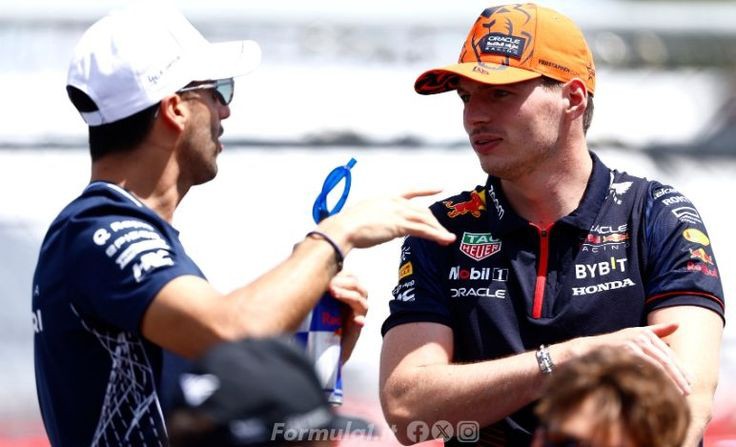Jacques Villeneuve, the 1997 Formula 1 World Champion, has always been known for his bold opinions and unfiltered takes on the world of motorsport. Recently, the Canadian driver stirred the pot with a controversial statement about Max Verstappen, one of the most dominant figures in modern Formula 1. Villeneuve declared that “nobody would care” if Verstappen decided to leave the sport, a remark that has sent shockwaves throughout the F1 community.
Max Verstappen, who has dominated the sport in recent years, winning multiple World Championships and breaking numerous records, has been the face of Red Bull Racing and one of the most successful drivers of his generation. However, Villeneuve’s comments have sparked debate over Verstappen’s place in F1 and the importance of the sport’s global appeal. But what exactly did Villeneuve mean by this assertion? And what does it say about the state of Formula 1 today?
The Context of the Statement
Jacques Villeneuve made his remarks during a media interview where he was asked to comment on the state of Formula 1 and the future of the sport, particularly regarding the younger generation of drivers. Villeneuve’s comment was part of a broader critique of the current landscape of F1, which he feels has become too predictable and dominated by a select few teams, primarily Red Bull Racing and Mercedes.
Villeneuve has a long history of voicing his opinion on Formula 1’s direction, often criticizing the sport’s business side and its tendency to prioritize entertainment over pure racing. However, his recent comment about Verstappen left many shocked, as it seemingly disregarded Verstappen’s immense impact on the sport.
“Max Verstappen is clearly one of the best drivers we have seen in a long time,” Villeneuve said. “But if he were to leave, nobody would care. It wouldn’t make a significant difference to the sport. People would move on, and someone else would fill his place. Formula 1 has survived many changes, and it will continue to do so without any one driver.”
Verstappen’s Impact on Formula 1
Max Verstappen’s rise to prominence has been meteoric. From his debut in Formula 1 in 2015 at the age of just 17 years old, Verstappen has become one of the most recognizable names in motorsport. Known for his aggressive driving style, exceptional racecraft, and fierce competitive nature, Verstappen quickly became a force to be reckoned with in F1.
In recent years, Verstappen has firmly established himself as the dominant driver in the sport, winning multiple championships and leading the charge for Red Bull Racing. His performances have turned him into a fan favorite, with millions of supporters around the world tuning in to watch him race. His rivalry with other top drivers, particularly Lewis Hamilton, has helped elevate the sport’s profile.
Despite this, Villeneuve’s comment seems to imply that Verstappen’s individual success is not as vital to F1’s survival as many may think. It raises the question: if Verstappen were to retire or leave the sport, would his absence actually affect Formula 1’s appeal and global popularity?
The Changing Nature of Formula 1
One of Villeneuve’s underlying points in his criticism is that Formula 1 has become less about individual drivers and more about the teams and the sport’s overarching spectacle. In the modern era of F1, commercial interests, sponsorships, and the involvement of major automotive manufacturers play a much larger role in the sport than in the past. As a result, the presence of a single driver—even one as talented as Verstappen—may not carry as much weight as it once did.
F1 is no longer the sport of the ’80s and ’90s, when iconic drivers like Ayrton Senna, Michael Schumacher, and Alain Prost were the primary draw for fans. Back then, these drivers were synonymous with the sport and had an undeniable influence on its success. Today, Formula 1 operates in a different landscape, with an emphasis on global broadcasting deals, sponsorships, and marketing strategies that go beyond individual drivers.
Villeneuve’s assertion may reflect a belief that the F1 fanbase has evolved into a more business-oriented entity, where star drivers are still important but not necessarily irreplaceable. As the sport continues to grow in popularity, driven by factors like Netflix’s “Drive to Survive” and a more international audience, F1 has become more of a collective spectacle than a platform for individual heroics.
Verstappen’s Popularity: More Than Just a Driver
While Villeneuve’s comment may suggest that Verstappen’s departure would not significantly impact the sport’s overall structure, it is important to acknowledge the massive fanbase that Verstappen has cultivated in recent years. Verstappen’s appeal stretches far beyond his skill on the track.

